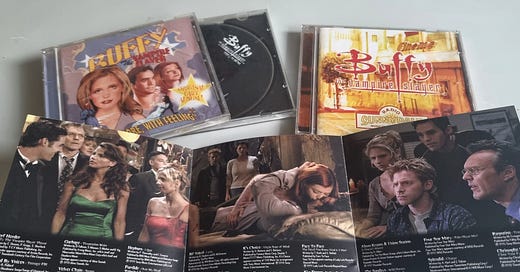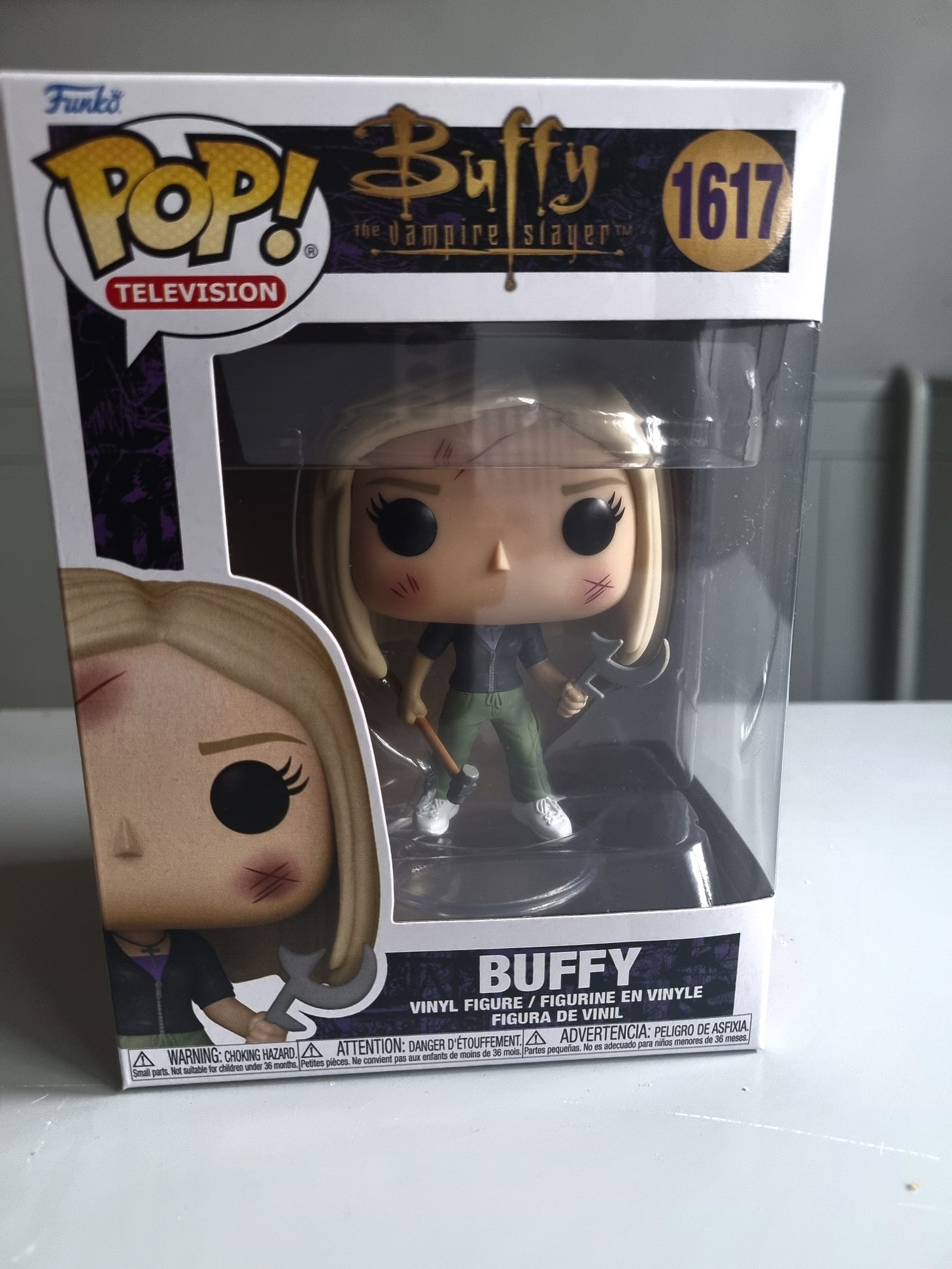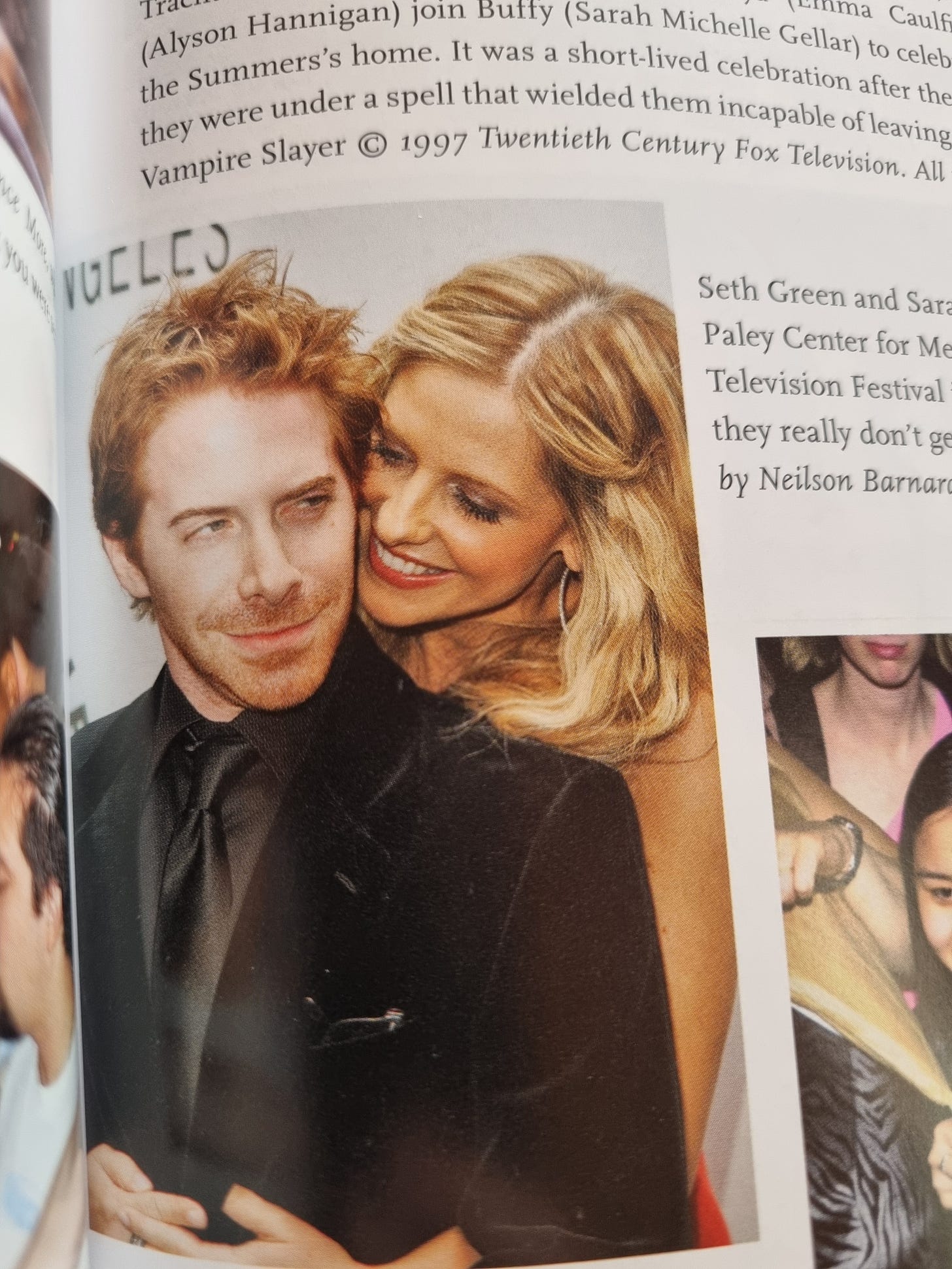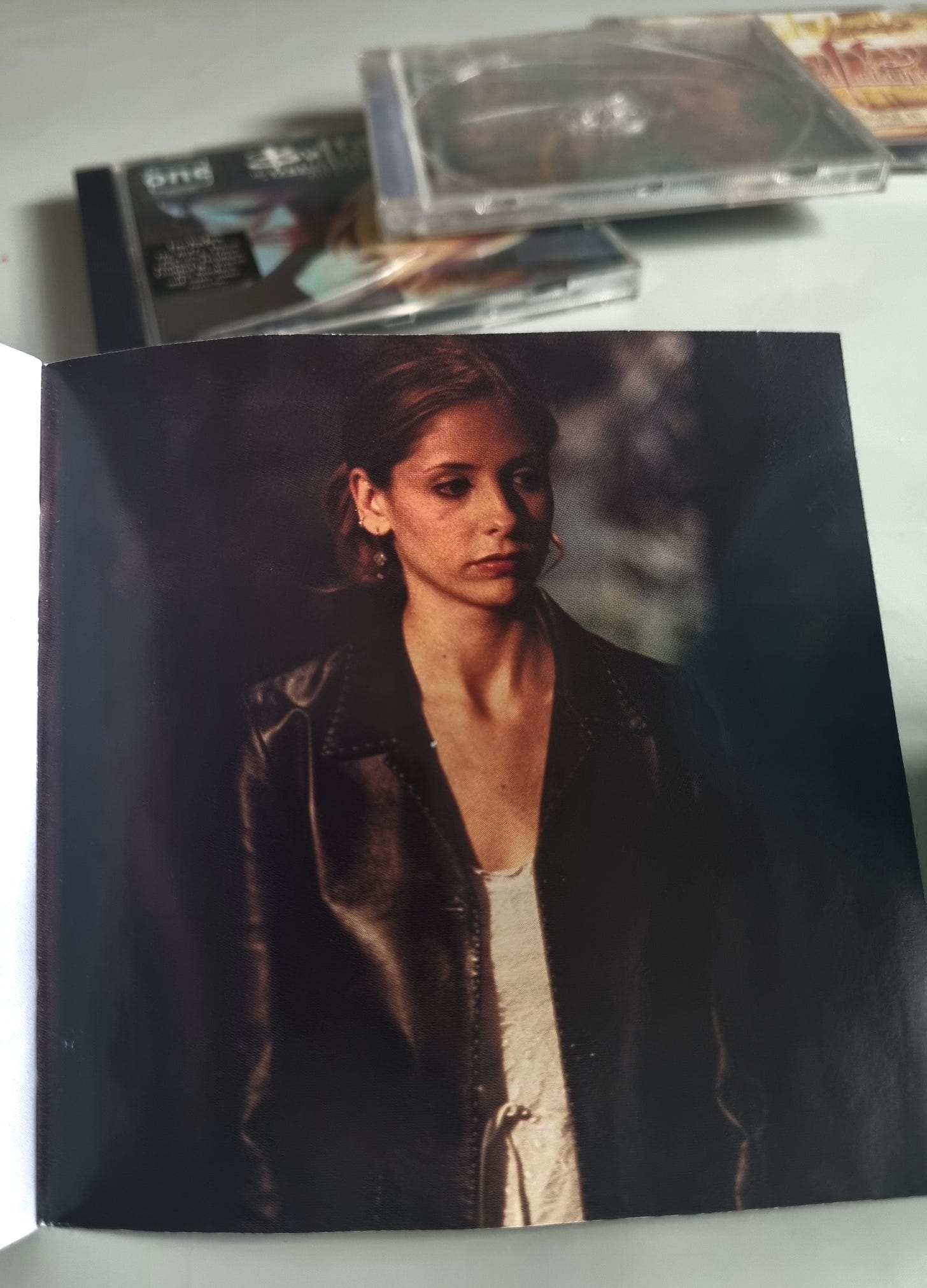Welcome back to Thursday Next, the weekly edition of Clary’s Cultural Cwtch. Before I loved Kate Bush or Tori Amos, there was Buffy…
Before I found solace in the swirling, layered melodies of Under the Pink, or imagined myself dancing on the moors while trying to reach the sopranos in The Kick Inside, I was at Gwent Tertiary College (Crosskeys Campus);17, nearly 18 and just beginning to glimpse the world beyond my comprehensive school days. That’s when Buffy the Vampire Slayer (the tv show) first aired. And while I liked it then, it was in drama school (Hertfordshire Theatre School), where I trained in acting and musical theatre from 1999 to 2002, that my full-blown love affair with it took hold.
It was the ultimate show. My emotional reset button and post-breakup remedy. It was my silent companion on lonely nights and my hangover cure and rainy-day comfort.
And yes, I even have a soft spot for the film. You know the one: camp, chaotic, and featuring a surprisingly nimble Paul Reubens. Gen Z might call me a Stan; I was neck-deep in a Luke Perry obsession, courtesy of 90210. Though let’s be real; my Dylan McKay crush was probably just queer camouflage. Classic Gen X sleight-of-hand: cover your bedroom in bad-boy posters to distract from the inconvenient truth that you actually fancied Brenda.
I clung to Buffy like a security blanket (and I know I’m not alone). Buffy fandom is quite like no other.
But as much as I love Buffy, I also think it’s important to engage with it critically. Because for everything it got right, it also got some things spectacularly wrong. And that’s part of loving something, isn’t it? Seeing the flaws, but choosing to stay, to analyse, to honour, to call out, and still find the beauty in the carnage. Now that's true fandom.
So, in the spirit of duality (and Buffy’s own big theme of light vs dark), here’s my loving “for every this, there’s a that” guide to being a superfan who holds the show accountable, too.
For every clumsy “magic is drugs” metaphor…
…there’s the gorgeous, ground breaking love story of Willow and Tara; a slow-burn, spellbinding arc that blossomed quietly in an era when queer couples were rare on primetime. Tender, authentic, and still devastating. (And no, I’m still not over Tara.)
But then there’s that metaphor soup: Wait, is magic a stand-in for drugs? No, hang on, it’s lesbianism. Or is it addiction? Or the addiction to power? And then in the series finale (spoiler alert) … magic is used to save the world?
So can drugs be good? Is lesbianism a corrupting force? Is addiction empowering now? You see the problem. Mixed metaphors ahoy.
For every offensive cultural stereotype in episodes like Inca Mummy Girl, Pangs or Restless…
…there’s sultry, smart Olivia. The razor-sharp Mr Trick. And Kendra; dodgy accent and all (which, to be fair, she was told to use by a dialect coach). She was only in a handful of episodes, but she made her mark. A Black Slayer with guts and grace who deserved more screen time, more backstory, and way better dialogue. She still managed to steal our hearts though.
For every character assassination on Buffy (I’m looking at you, Oz)…
…there’s Wesley’s magnificent arc from foppish Watcher to tragic anti-hero (over on sister show Angel). There’s Willow’s slow transformation from wallflower to world-altering witch. There’s Buffy (always Buffy) who grew from Valley Girl to saviour of the world.
For every badly CGI’d monster or dated tech plotline (I Robot, You Jane, anyone?)…
…there’s Hush and Restless, which proved you could do horror, beauty, and experimental storytelling on a teen network show. And let’s not forget the stunt choreography; still slick, still satisfying.
For every time the show punished women for having sex…
The Angelus storyline (which was admittedly amazing), Parker ghosting after a one night stand, Tara’s death (after they spent the day in bed after just getting back together), Spike’s consent issues (Seeing Red), Invisible Buffy attempting to give Spike oral after he says “no,” Faith assaulting Xander and impersonating Buffy to sleep with Riley…
…there’s Once More, With Feeling, where characters sing lines like “I can feel you inside…” and “You make me complete, you make me com—” before a sharp, cheeky cut to another scene. That was pushing boundaries.
For every moment of victim-blaming or dubious moral framing…
…there’s the raw, aching honesty of The Body, which changed what TV could be. No score. No fantasy. Just grief. And yes; even Beer Bad is a guilty pleasure. I figure, it’s so on the nose it must be poking fun at itself.
For every time the show centred whiteness or cisnormativity…
…there’s the hope that its huge legacy (and its fiercely loyal fanbase) will push the inevitable reboot/revival/continuation into more inclusive territory. With new magic. New voices. New heroes. But Buffy Summers herself at the helm.
And it’s worth remembering: Buffy wasn’t just Joss Whedon’s legacy. It was crafted by a huge team of writers, directors, cast and crew. That’s the magic fans cling to. The ensemble brilliance, the cast chemistry, the way Sarah Michelle Gellar made that role iconic. Buffy Summers became Buffy not because of one man’s vision, but because of a whole community of creatives breathing life into it.

That’s the legacy I hold on to. That’s the part I honour.
Because loving Buffy isn’t about blind nostalgia. It’s about being able to say: This saved me (a lot). This shaped me. And it could’ve done better.
And if that’s not the most Buffy thing ever (fighting the darkness, flaws and all), I don’t know what is.












Clary more good writing, even though I never availed of alternative methods of birthing or watched Buffy I still get the plot.